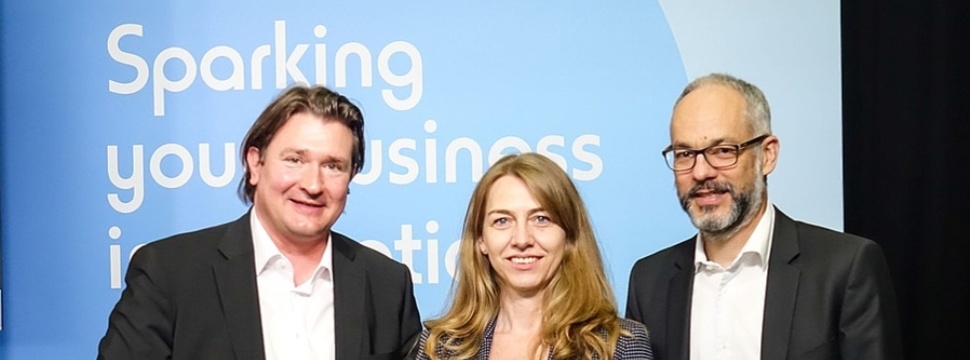Klingele establishes new data culture and wins BARC Award
News General news
Data is not only an important resource for companies to generate knowledge, but also to make informed decisions. In light of this, the Klingele Paper & Packaging Group, one of the leading independent manufacturers of corrugated base paper and corrugated cardboard packaging, is establishing a new data culture in the company with its DeltaMaster key performance indicator system from Bissantz & Company GmbH.

DeltaMaster offers Klingele comprehensive insights into operational development in all areas of the company as well as efficient control options – in a user-friendly manner that requires little effort. The system also won Klingele the BARC Best Practice Award for Business Intelligence (BI) and Analytics in the medium-sized company category. Britta Trauernicht, Head of Controlling and Energy Management at Klingele, accepted the prize at the Big Data & AI World conference in Frankfurt. The BARC Award distinguishes project teams who use their data and analytics initiative to bring significant benefits to their company.
Flexible evaluations – automated reporting
Increasingly volatile markets as well as the company’s international expansion in recent years demand decisions and control mechanisms that are based on current data at Klingele. Against this background, the aim was to introduce a group-wide, uniform key performance indicator system using a modern business intelligence solution and thus replace existing Excel applications. DeltaMaster links current data from SAP HANA, including from accounting, sales, production and other sources. It processes the figures in a user-friendly, needs-based way for self-service applications and visualises them in a clearly comprehensible, accessible manner. All figures can be broken down to the smallest unit for evaluations on a wide range of issues; deviations from the plan can be detected at a glance. The data basis and key performance indicator system are uniform for all plants to ensure that all users have the same basis for decision-making. The solution’s high level of automation enables rapid data integration and provision, helps to avoid errors and supports reliable reporting.
“Democratising” knowledge – breaking down silos
For Klingele, the DeltaMaster represents the dawn of a new data culture. The intuitive use in self-service mode enables employees to independently access insights based on current data. This also helps departments to make informed decisions and respond to new developments faster. The 360° view of data also supports the dissolution of silos and encourages collaboration between different areas. This not only promotes knowledge transfer, but also expands the skills of the teams and creates more appreciation of cohesion within the company. DeltaMaster also establishes a close link between analytical and operational perspectives and supports the company’s strategic planning. The solution is therefore set to become the main control tool at Klingele – initially in Germany, but also internationally in the future. “We are delighted to have received this award from BARC,” states Dr Jan Klingele, Managing Partner of the company. “After all, it shows us that we are competitively positioned in terms of data-driven corporate management and that we are using modern technologies in a relevant and efficient manner. DeltaMaster will help us to significantly increase transparency and improve planning skills in our company. I’d therefore also like to take this opportunity to thank the team that drove the development and implementation of the solution at our company.”
About the BARC Best Practice Award
Since 2005, the independent analyst company BARC has used its annual Best Practice Award Business Intelligence and Analytics to distinguish software projects that stand out due to their economic benefits and exemplary implementation methods and procedures. Evaluation criteria include the technology used, the content concept, recognisable user orientation, cost-benefit ratio and the innovations created. The applications must clearly show why the corresponding business intelligence project was able to achieve a high business benefit and what quantifiable and qualitative results are available.










